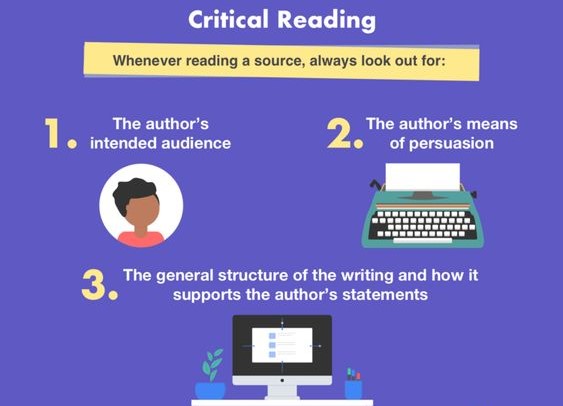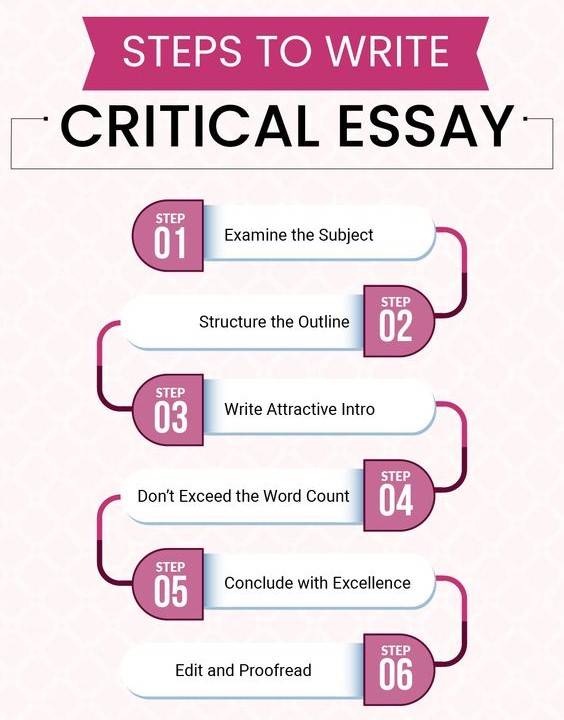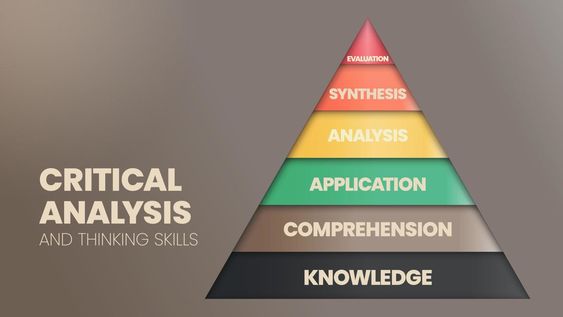The critical analysis essay stands as a testament to the power of critical thinking, urging us to move beyond mere summarization and delve into the depths of meaning and interpretation. It's a chance to examine a text, be it a book, film, poem, artwork, or even a social phenomenon, with a discerning eye and a probing mind.
This essay is not simply about stating opinions; it's about constructing an argument supported by evidence and analysis, revealing hidden layers and complexities within the text.
Understanding the Foundation: Defining the Critical Analysis Essay
At its core, the critical analysis essay is a thoughtful exploration of a text, aiming to dissect its underlying messages, assumptions, and techniques. It's not about finding flaws or simply stating personal opinions. Instead, it's a process of engaging with the text, analyzing its components, and drawing insightful conclusions based on evidence.
The Pillars of a Strong Critical Analysis Essay
Like article reviews, building a compelling critical analysis essay involves mastering a few key elements:
- Choosing the Right Text: The first step is selecting a text that resonates with you, sparking curiosity and prompting meaningful analysis. It could be something you're passionate about, something that challenges your beliefs, or something that intrigues you intellectually.
- Formulating a Clear Thesis: The thesis statement acts as the central argument of your essay. It should be a concise statement that encapsulates your interpretation of the text and provides a roadmap for your analysis. A strong thesis should be debatable, specific, and focused, guiding the reader through your exploration.
- Building a Solid Framework: The structure of your critical analysis essay is crucial for presenting a clear and logical argument. A common structure includes:
- Introduction: Introduce the text, its author/creator, and the context surrounding it. Briefly discuss the main arguments or themes you'll be exploring. End with your thesis statement.
- Body Paragraphs: Each body paragraph should focus on a specific point or aspect of your analysis. Use evidence from the text, examples, and textual analysis to support your claims. Connect your analysis back to your thesis, demonstrating how it contributes to your overall argument.
- Conclusion: Summarize your key points and restate your thesis. Briefly reflect on the implications of your analysis and its significance.
- Utilizing Textual Evidence: The strength of your critical analysis essay lies in the evidence you present. Use quotes, paraphrases, summaries, and other textual details to support your claims. Ensure you analyze these pieces of evidence, explaining their relevance to your argument and how they contribute to your overall understanding of the text.
- Adopting a Critical Lens: A critical analysis essay requires you to analyze the text through a specific lens. Choose a theoretical framework or a specific question that guides your interpretation. Common analytical lenses include:
- Feminist Criticism: Analyzing the portrayal of gender roles and power dynamics within the text.
- Marxist Criticism: Examining the text's representation of class conflict and economic structures.
- Psychoanalytic Criticism: Exploring the unconscious motivations and desires of characters or the author.
- Historical Criticism: Analyzing the text within its historical context and considering how it reflects the time period it was created in.

Common Mistakes to Avoid in Critical Analysis Essays
While the critical analysis essay offers a unique opportunity to delve deep into a text, some common mistakes can derail the effectiveness of your argument:
- Missing the Mark with the Thesis: A vague or overly general thesis statement won't provide a clear direction for your analysis. Make sure your thesis is specific, debatable, and focused on a particular aspect of the text.
- Over-Reliance on Summary: Don't simply retell the story or provide a summary of the text. Your critical analysis essay should focus on analyzing the text and drawing insightful conclusions, not simply recounting the plot.
- Lack of Evidence: Your analysis must be grounded in the text. Use specific quotes, examples, and textual details to support your claims. Avoid making generalizations or unsubstantiated assertions.
- Ignoring Counterarguments: A strong critical analysis essay acknowledges alternative viewpoints and addresses counterarguments. This demonstrates a balanced and nuanced understanding of the text.
The Critical Analysis Essay Structure
Crafting a Compelling Introduction
The introduction sets the stage for your analysis, capturing the reader's attention and establishing the context for your argument. Here's how to write a compelling introduction:
- Hook the reader: Start with a captivating opening sentence or a relevant anecdote that draws the reader into your topic.
- Introduce the text: Briefly describe the text you're analyzing, its author, and its genre. Provide essential context for the reader to understand the work.
- State your thesis: Clearly and concisely articulate your main argument about the text, outlining your interpretation and the direction of your analysis.
Building Powerful Body Paragraphs
Each body paragraph should focus on a specific aspect of your analysis, offering evidence and interpretation to support your thesis. Follow these steps:
- Topic Sentence: Begin each paragraph with a clear topic sentence that states the main point you'll be exploring in that section.
- Evidence: Provide specific evidence from the text, using quotes, paraphrases, or summaries to support your claim.
- Analysis: Explain how the evidence connects to your topic sentence and your overall argument. Analyze the meaning, significance, and implications of the evidence.
- Transition: End each paragraph with a transition sentence that connects to the next paragraph and maintains the flow of your argument.
Crafting a Convincing Conclusion
The conclusion provides the final opportunity to reinforce your argument and leave a lasting impression on the reader. Here's how to write a strong conclusion:
- Restate the thesis: Briefly restate your thesis statement, emphasizing the main points of your analysis.
- Summarize key points: Briefly summarize the main arguments you've explored in the body paragraphs, highlighting the key takeaways of your analysis.
- Implications: Discuss the broader implications of your findings, exploring the potential impact of your analysis and its relevance to the wider context.

Beyond the Essay: Revising and Editing
Once you've completed your critical analysis essay, it's crucial to revise and edit thoroughly. Here's a checklist to ensure a polished and effective essay:
- Read aloud: Read your essay aloud to identify any awkward phrasing or grammatical errors.
- Check for clarity: Ensure that your arguments are clear, concise, and easy to follow.
- Look for logical flow: Make sure your paragraphs flow smoothly and logically from one to the next, with clear transitions.
- Check for errors: Pay close attention to grammar, spelling, punctuation, and formatting.
Critical Analysis Nursing Essay Topics
Here are 6 topics for critical analysis nursing essays, aiming for a balance of current and timeless issues:
- The Impact of Technology on Patient Care: Explore the benefits and drawbacks of technology in nursing, such as electronic health records, telehealth, and wearable health trackers. Analyze the ethical considerations, potential for errors, and impact on the nurse-patient relationship.
- The Role of Nurses in Promoting Health Equity: Analyze the disparities in healthcare access and outcomes based on race, ethnicity, socioeconomic status, and other factors. Examine the role of nurses in advocating for vulnerable populations, addressing systemic barriers, and promoting culturally competent care.
- The Ethics of End-of-Life Care: Critically examine the ethical dilemmas surrounding end-of-life care, including advance care planning, pain management, assisted suicide, and the role of nurses in supporting patients and families. Explore the challenges of balancing patient autonomy, beneficence, and non-maleficence.
- The Impact of Nursing Shortages on Patient Safety and Quality of Care: Analyze the consequences of staffing shortages on the ability of nurses to provide safe and effective care. Examine the impact on patient wait times, burnout among nurses, and the potential for medical errors. Consider solutions to address this growing problem.
- The Role of Nurses in Mental Health Care: Analyze the evolving role of nurses in providing mental health services. Discuss the importance of mental health screening, early intervention, and the integration of mental health care into primary care settings. Consider the challenges and opportunities for nurses in this expanding field.
- The Future of Nursing: Innovations and Emerging Trends: Analyze emerging trends in nursing practice, such as telehealth, personalized medicine, artificial intelligence, and data analytics. Discuss the potential impact of these innovations on the nursing profession, the delivery of care, and the role of nurses in the future healthcare system.
Remember to choose a topic that interests you and that you can research thoroughly. Be sure to use credible sources and to present your arguments in a clear and concise manner.
The critical analysis essay goes beyond simple interpretation; it invites us to actively engage with texts, explore deeper meanings, and construct well-reasoned arguments. By mastering the art of critical analysis, we not only gain a deeper understanding of texts but also refine our critical thinking skills, enabling us to engage with the world around us with a more insightful and nuanced perspective.

Ultimately, the best critical analysis essay is one that demonstrates a profound understanding of the text, a clear and engaging argument, and a thoughtful exploration of its deeper layers of meaning. It's a journey of discovery, where we uncover the hidden gems within the text and develop our own unique interpretations.
Professional Critical Analysis Essay Writing Help
Writing an impactful critical analysis essay can be overwhelming even to top performing students. Instead of struggling on your own, get professional critical analysis essay writing help from Exemplary Dissertations. We guarantee authentic and high quality essays for academic success.